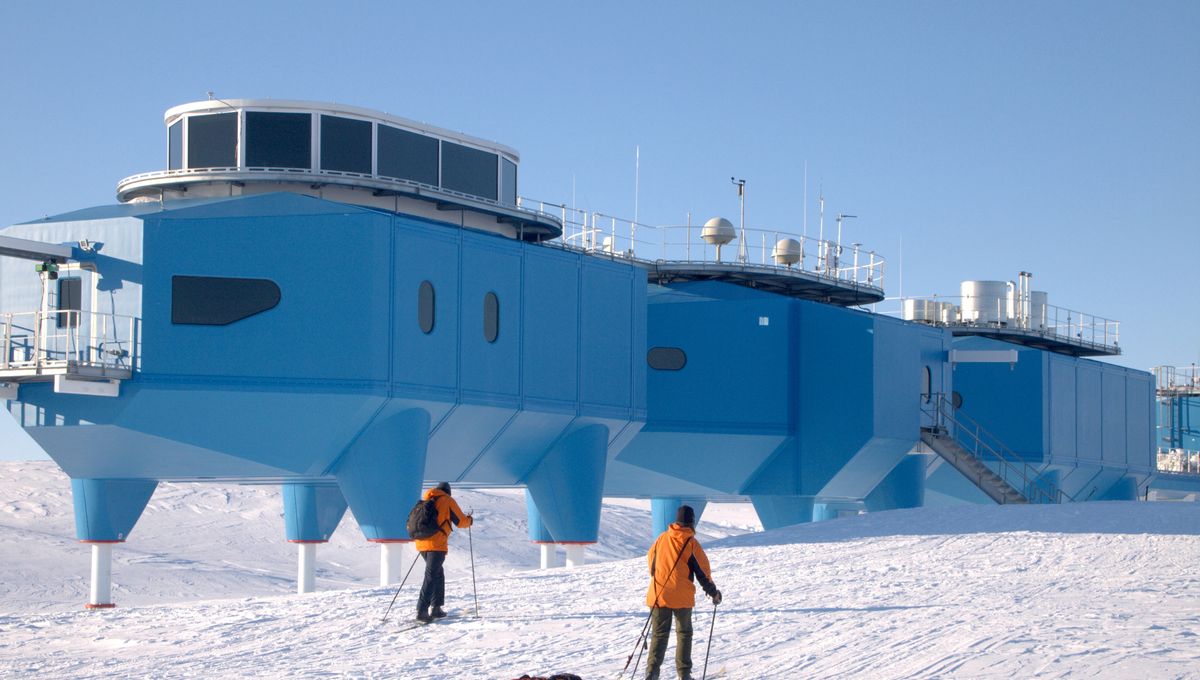
Tired of the rat race and the relentless grind of a 9-to-5 job? You might want to consider packing your thermal underwear and heading to Antarctica for a unique work adventure: The British Antarctic Survey (BAS) has announced it is recruiting for a variety of job positions at its research stations in Antarctica.
ADVERTISEMENT GO AD FREE
This includes a wide range of roles such as scientists, technicians, engineers, carpenters, chefs, electricians, plumbers, and more. A handful of vacancies have already been posted – including everything from Marine Biologist and Electronics Engineer to Health and Safety Advisor – but the BAS is set to reveal more roles over the next three months.
You can view the job roles on their website: bas.ac.uk/vacancies. Salaries start at £29,273 (around $36,461 at the time of writing) per annum, but it’s worth considering that all living expenses are covered while working here, including accommodation, food, travel, specialist clothing, tools, and training. The contracts run from six to 18 months and are considered “flexible”.
Bear in mind, though, that successful candidates will need to attend training sessions in the UK, so you’ll need to be eligible to work in the UK (even though the job itself is in Antarctica).
Antarctica has no native human population or permanent residents. However, it is home to a temporary community of scientists, technicians, and support staff who live there on a rotational basis. The population peaks at around 5,000 during the summer months, but it declines to roughly 1,000 during the harsh, sunless winter.
Living here is certainly not for everyone, but some who have worked an Antarctic season find themselves returning again and again.
“There’s something special about Antarctica and the people that adventure there that gets under your skin. No matter how many times you go, when you step off the ship or aeroplane into Antarctica, look up and take in where you are. That feeling of being in an amazing place is that same now as it was the first time,” Head of Vehicles at BAS Ben Norrish, who has spent 16 seasons living and working in the Antarctic, said in a statement.
ADVERTISEMENT GO AD FREE
“I would say to anyone who’s even a bit curious about what it’s like to live on the ice, take the leap and apply for the job of a lifetime – you won’t regret it and you don’t know where it might take you,” said Norrish.
However, life in Antarctica is not without its challenges. The world’s southernmost continent is an alien, isolated, and extremely cold place, and during the winter it becomes desperately dark – a combination that can take a psychological toll.
A 2018 study suggested that people working in Antarctica over the winter enter a state of “psychological hibernation,” marked by deteriorating sleep quality and low mood. Fortunately, most people recover when the sun returns and there’s no evidence of long-term psychological harm.
As an isolated destination that attracts different characters from around the globe, Antarctica serves as a fascinating petri dish for cultural exchange. Linguists studying the transitory community that lives here have noted that people working for long periods in Antarctica can experience a measurable change in their accents, as per a 2019 study.
ADVERTISEMENT GO AD FREE
A significant change observed in the study group was the way they began pronouncing words with longer vowels. Additionally, there was evidence of linguistic innovation in the group. Towards the end of their stay in Antarctica, the residents were pronouncing “ou” sounds – like those found in the words “flow” and “disco” – from the front of their mouths, as opposed to the back of their throats.
“The Antarctic accent is not really perceptible as such – it would take much longer for it to become so – but it is acoustically measurable,” Jonathan Harrington, study author and Professor of Phonetics and Speech Processing at the Ludwig-Maximilians University of Munich, told IFLScience in 2023.
“It’s mostly an amalgamation of some aspects of the spoken accents of the winterers before they went to Antarctica, together with an innovation,” added Harrington. “It’s far more embryonic [than conventional English accents] given that it had only a short time to develop and also, of course, because it’s only distributed across a small group of speakers.”
Source Link: Sick Of Your Job? Antarctica Is Offering New Employment Opportunities